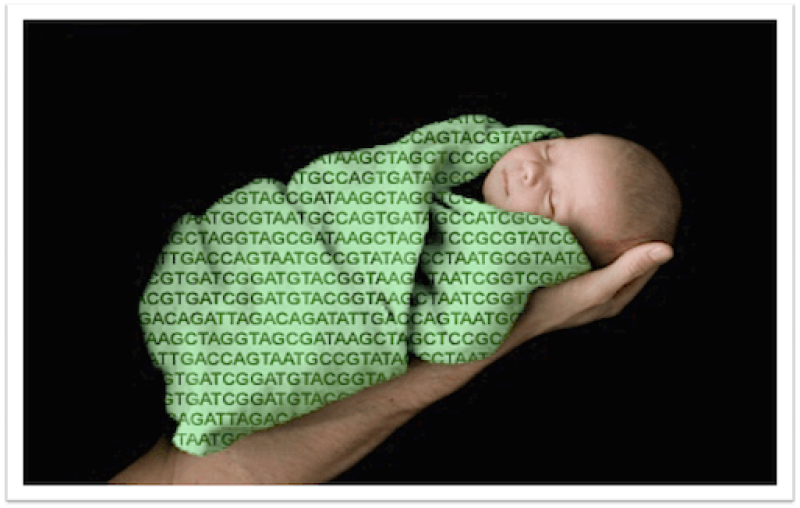Razib Kahn is a University of California, Davis genetics PhD student and blogger. And his son, born earlier this month, is also likely to be the first healthy infant to be genetically sequenced before birth, reports MIT’s Technology Review.
Kahn and his wife chose to have a test called chorionic villus sampling or CVS. In this test, a small sample of tissue is taken from the placenta, which shares fetal DNA. The Kahn family sent the sample to a traditional genomics testing company, then got it back for further testing. With the assistance of some colleagues and a Promethease, a free online genetic analysis program, Kahn was able to complete his son’s genome.
Kahn and his wife had no specific reason to analyze their son’s genome like a family history of disease or test results indicating there might be a genetic disorder. He has written extensively on the future of genomics for fetal genetic analysis.
The idea of sequencing fetuses is extremely new and sensitive. Khan, who had no real medical reason to learn his son’s DNA code, says sequencing his son in utero “was more cool than practical.” He did it to show where technology is headed and because he likes “pushing the envelope.”
Critics of widespread use of prenatal genetic screening have often pointed to this exact scenario as a harbinger of impending doom and the rise of new genetics. Why would a parent screen a seemingly healthy fetus with no other risk factors? The only possibility is finding an aberrant mutation, which as Kahn and Tech Review’s Antonio Regalado both point out, may or may not ever manifest into a harmful condition.
Others argue that prenatal genomic screening is a tragedy waiting to happen because parents might abort fetus’ whose genetic makeup is not desirable. Although the same arguments could be made for ultrasound findings, which are now ubiquitous and noncontroversial.
But Kahn and others point out that this technology is coming down the pipeline, whether or not society has reached a consensus. “The future is here. Deal with it,” he wrote while explaining the fetal genomic business environment and the fast pace of change.
He remains happy that he and his wife pursued the sequencing ahead of the birth, despite not finding much of anything in the analysis, which is, as he noted, a very positive result.
“Our attitude is that you make a lot of decisions for your kids, including ones that may seem sketchy in hindsight.”
Kahn’s son was born earlier this month.
Additional Resources:
- Genetic pre-natal test opens window to improved diagnoses, stirs concerns, Jon Entine, Genetic Literacy Project
- A genetic blueprint of your unborn baby, Harriet Washington, New Scientist
- Another step towards designer babies? Tabitha Powledge, Genetic Literacy Project































